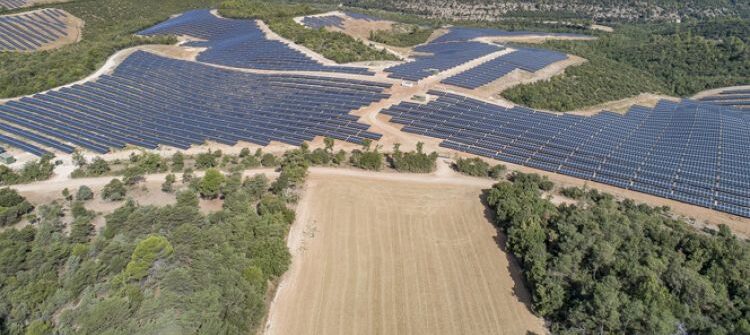Multinational utility Engie and renewables developer Neoen are to invest €1.2 billion in a large-scale solar-plus-storage project in south eastern France, which includes a 1GW solar system and 40MW of battery energy storage.
The Horizeo project will include a 1GW capacity solar farm in Saucats, Nouvelle-Aquitaine, as well as 40MW of energy storage and a 10MW electrolyser for green hydrogen energy generation, as well as a data centre.
France’s National Commission for Public Debate announced last month it would hold a public debate to allow the local community in Saucats, where the Horizeo project is set to be constructed, to “participate in the development” of the system, which will be one of the largest in Europe on completion.
France’s installed PV capacity reached 9.43GW at the end of 2019, but the country still has four years to reach its goal of 18-21GW capacity. Beyond that, the government is calling for as much as 44.5GW by 2028. The Nouvelle-Acquitaine region has its own target of 8.5GW of installed PV capacity by 2030, compared with around 2GW today.
Energy auctions have become a key tool for the government to ramp up its installed PV target before the deadline. The Minister for Ecological Transition awarded tariff support to 341MW of solar projects last October following completion of an oversubscribed auction that featured reduced prices compared to previous rounds.
Corporate contracts have also become crucial building blocks for energy producers and asset owners to become profitable without government support. Reports published within the past four months have shown record numbers of power purchase agreements (PPAs) being struck between asset owners and businesses in the US and Australia, while France was among the top 10 markets for PPAs in 2019.
However, the Horizeo project will generate revenue from over-the-counter contracts with businesses, as opposed to sourcing income through calls for tenders from the Energy Regulatory Commission (CRE) and therefore, without government subsidy, according to a statement from both Engie and Neoen.
Paul-François Croisille, deputy CEO of Neoen, said France’s energy transition could be accelerated by projects like Horizeo that offer “competitive renewable energy directly to companies”.
The proposed Horizeo system would represent “a real break with the current economic model of renewable energy in France,” according to Engie’s deputy chief executive in charge of renewables, Gwenaëlle Avice-Huet.
Avice-Huet added that both companies are “committed to carrying out an exemplary project in terms of environmental and societal approach.
“The upcoming public debate will allow us, in particular, to enrich and to feed all the components of the project.”
